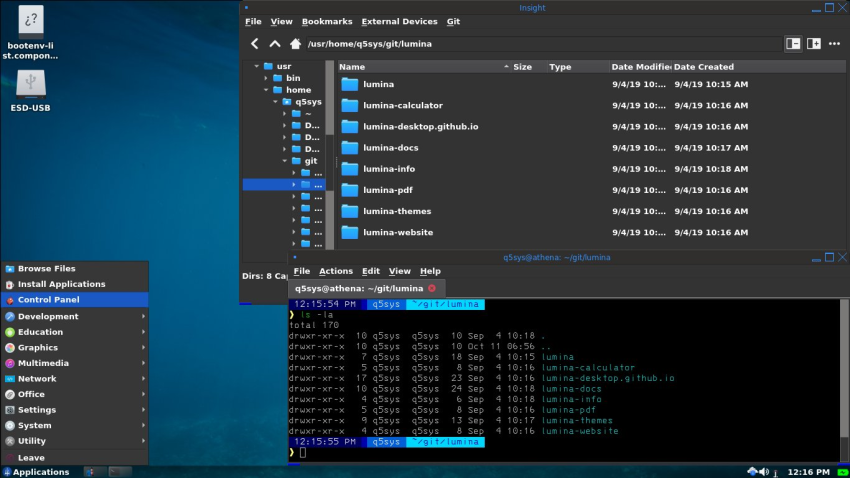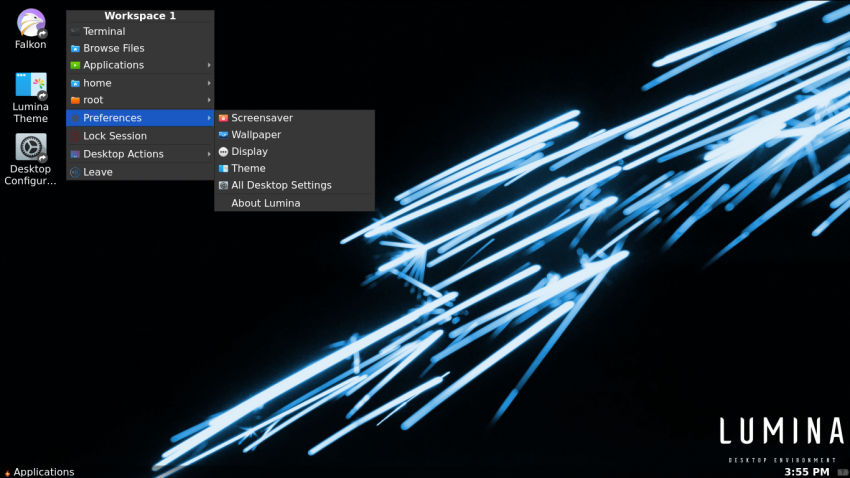
Sadly, the Project Trident team announced that they will be ending development of their Linux distro.
Story Time!!!
For those of you who have not heard of Project Trident, let me give you a little ride down memory lane. Back in 2005, Kris Moore introduced PC-BSD as an easy way to set up FreeBSD with a desktop interface. It was acquired the following year by iXsystems. In September of 2016, the name of the project was changed to TrueOS. The project also became a rolling release based on the Current branch of FreeBSD. Two years later, TrueOS announced that they would be doing away with the desktop version of their operating system and focusing on the enterprise and server market. The desktop elements were spun off to a new project: Project Trident.
For a time, the dev team at Project Trident tried their best to create a good desktop experience on top of FreeBSD. However, due to issues with FreeBSD including “hardware compatibility, communications standards, or package availability continue to limit Project Trident users” they decide to base it on something else. Their solution was to rebase their project on Void Linux in 2019. For a while, it looked like the future of Project Trident was set. Then 2020 happened.

The End of a Project
On October 29th, the Project Trident team posted the following announcement:
It is with great sadness that we are announcing that Project Trident will be entering is “sunset” period starting Nov 1 of 2021 and will be closing up shop in March of 2022. The core team of the project has come to this decision together. With changes and events over the past two years in life, jobs, family, etc; our individual priorities have changed as well.
We will keep the Project Trident package repository and websites up and running until the EOL date of March 1, 2022, but we strongly encourage users to begin looking for alternative desktop OS solutions over the coming new year holiday.
Thank you all for your support and encouragement! The project had a good run and we thoroughly enjoyed getting to know many of you over the years.
The Lumina Project Continues
One constant throughout the PC-BSD/TrueOS/Project Trident saga is the desktop environment in use. In 2012, Ken Moore (Kris’ younger brother) started working on a Qt-based desktop environment named Lumina. In 2014, it became the default desktop environment of PC-BSD and has stayed that way down to Project Trident. Lumina stands apart from other desktop environment because it was designed to be operating system agnostic. Other desktop environments like KDE and GNOME have Linux specific code that makes it hard to port to BSD.

June of this year, Ken handed the reigns of Lumina to a fellow Project Trident developer JT Pennington (also of BSDNow fame).
The announcement states:
After more than 7 years of work, I have decided that it is time to let others take over the development of the Lumina Desktop project going forward. It has been an incredible task which has pushed me into areas of development that I had never previously considered. However, with work and life changes, my time for developing new functionality for Lumina has become nearly non-existent, particularly for the Qt5 -> Qt6 change that will be coming within the next year or so. By passing the torch over to JT (q5sys on GitHub), I am hoping that the project might receive more timely updates, for the benefit of everyone.
Thank you all, and I hope for the continued success of the Lumina Desktop project!!
Final Thoughts
I always had high hopes for Project Trident. They were small compared to many of the distros that we cover. They weren’t just a reskin of Arch or Ubuntu with one or two new tools. Not only that, but they were working to improve a distro (Void) that shared their ideals. However, life happens, even to the best of us. I wish Ken, JT and the others well as they sunset a project that they have spent many hours working on. Hopefully, we’ll be seeing more from them in the future.
- Even the biggest players in the Linux world don't care about desktop Linux users. We do.
- We don't put informational content behind paywall. Your support keeps it open for everyone. Think of it like 'pay it forward'.
- Don't like ads? With the Plus membership, you get an ad-free reading experience.
- When millions of AI-generated content is being published daily, you read and learn from real human Linux users.
- It costs just $2 a month, less than the cost of your favorite burger.
Become a Plus Member today and join over 300 people in supporting our work.









